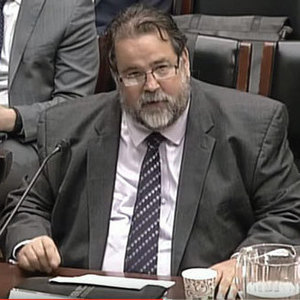All Smoke, No Fire on RFS Reform, Repeal Efforts

July 22, 2016
BY Bob Dinneen
Congress is steamrolling through its second session of the 114th Congress. With it being an election year, aside from must-pass appropriation bills to fund the government, most observers don’t expect much to be enacted into law. That also means that legislative efforts to reduce or repeal the renewable fuel standard (RFS) likely won’t see any movement this year.
A handful of bills to alter or completely dismantle the RFS has been introduced this Congress, including those by Reps. Bob Goodlatte, R-Va., and Bill Flores, R-Texas, and Sens. Bill Cassidy, R-La., Dianne Feinstein, D-Calif., and Pat Toomey, R-Pa. Each time a legislative effort has been mounted to alter the RFS, the Renewable Fuels Association and others have hit back against the blatant misinformation propagated by biofuels opponents. We also offer our RFA Advocacy mobile app, which gives smartphone users free-of-charge access to key ethanol-related information. The RFA Advocacy app empowers any ethanol advocate to challenge efforts to undermine the RFS.
In May, Flores introduced legislation that would cap ethanol blends in the U.S. transportation pool to no more than 9.7 percent by volume. Passage of this bill would represent a complete capitulation to the oil industry that steadfastly refuses to provide consumers higher octane, lower cost alternative fuels at the pump. The oil industry whines about a so-called blend wall even as it continues to build it by denying consumer access to E15 and E85. The RFS was made necessary by oil company intransigence. It was intended to break the stranglehold oil companies have on the motor fuel market by forcing access. This bill would gut the RFS and send America’s energy and climate change policy back decades.
The RFA also pushed back on RFS repeal or reform efforts while testifying at a late June hearing by the House Energy and Commerce Subcommittee on Energy and Power. The oil industry would like to dramatically reduce or repeal the RFS because the program’s continued implementation would mean a further loss of market share. However, doing so would devastate investment in next generation biofuel technologies and halt progress already made, the RFA testified to the subcommittee.
The incumbent industry already has lost 10 percent of the market. If the RFS is implemented consistently with the statute, the market will make the final push to see cellulosic ethanol and other advanced biofuels to fruition, resulting in the loss of 30 percent of the market, RFA noted.
During the hearing, Chet Thompson, president of the American Fuel and Petrochemical Manufacturers, said consumers don’t want biofuels. RFA responded to that claim by saying there is no consumer that wants benzene or any other toxic aromatics in their fuel, either. The discussion about what consumers want is interesting, but I assure you if you ask consumers, they would want a domestic, clean-burning fuel.
My message to the committee was Congress did an excellent job of crafting the RFS, building in a great deal of administrative and market flexibility to deal with issues as they arise. Don’t be bullied by the hyperbole and scare mongering by the incumbent industry that fundamentally disagrees with the need for alternative, low-carbon options for consumers. There is nothing wrong with the RFS that cannot be fixed with what is right with the RFS, and there is no need to legislate changes to a program that is working well today.
While Congress will be preoccupied with other legislative issues as it winds down this session, the RFA will continue to be on guard, hitting back at misinformation and making sure the RFS and all its benefits stay put.
In the meantime, the next time Big Oil and its supporters in Congress trot out misinformation on the RFS, remember its motivation is to maintain a near monopoly in fueling the transportation sector. Energy diversification is the ultimate goal and ethanol, with all of its benefits, can help the U.S. wean off our addiction to oil and move toward cleaner and domestic fuels. The RFA Advocacy app will help consumers join the effort and fight back against inaccurate statements made against biofuel opponents.
Author: Bob Dinneen
President and CEO,
Renewable Fuels Association
202-289-3835
Advertisement
Advertisement
Advertisement
Advertisement
Related Stories
The U.S. EPA on July 8 hosted virtual public hearing to gather input on the agency’s recently released proposed rule to set 2026 and 2027 RFS RVOs. Members of the biofuel industry were among those to offer testimony during the event.
The USDA’s Risk Management Agency is implementing multiple changes to the Camelina pilot insurance program for the 2026 and succeeding crop years. The changes will expand coverage options and provide greater flexibility for producers.
President Trump on July 4 signed the “One Big Beautiful Bill Act.” The legislation extends and updates the 45Z credit and revives a tax credit benefiting small biodiesel producers but repeals several other bioenergy-related tax incentives.
CARB on June 27 announced amendments to the state’s LCFS regulations will take effect beginning on July 1. The amended regulations were approved by the agency in November 2024, but implementation was delayed due to regulatory clarity issues.
SAF Magazine and the Commercial Aviation Alternative Fuels Initiative announced the preliminary agenda for the North American SAF Conference and Expo, being held Sept. 22-24 at the Minneapolis Convention Center in Minneapolis, Minnesota.
Upcoming Events










